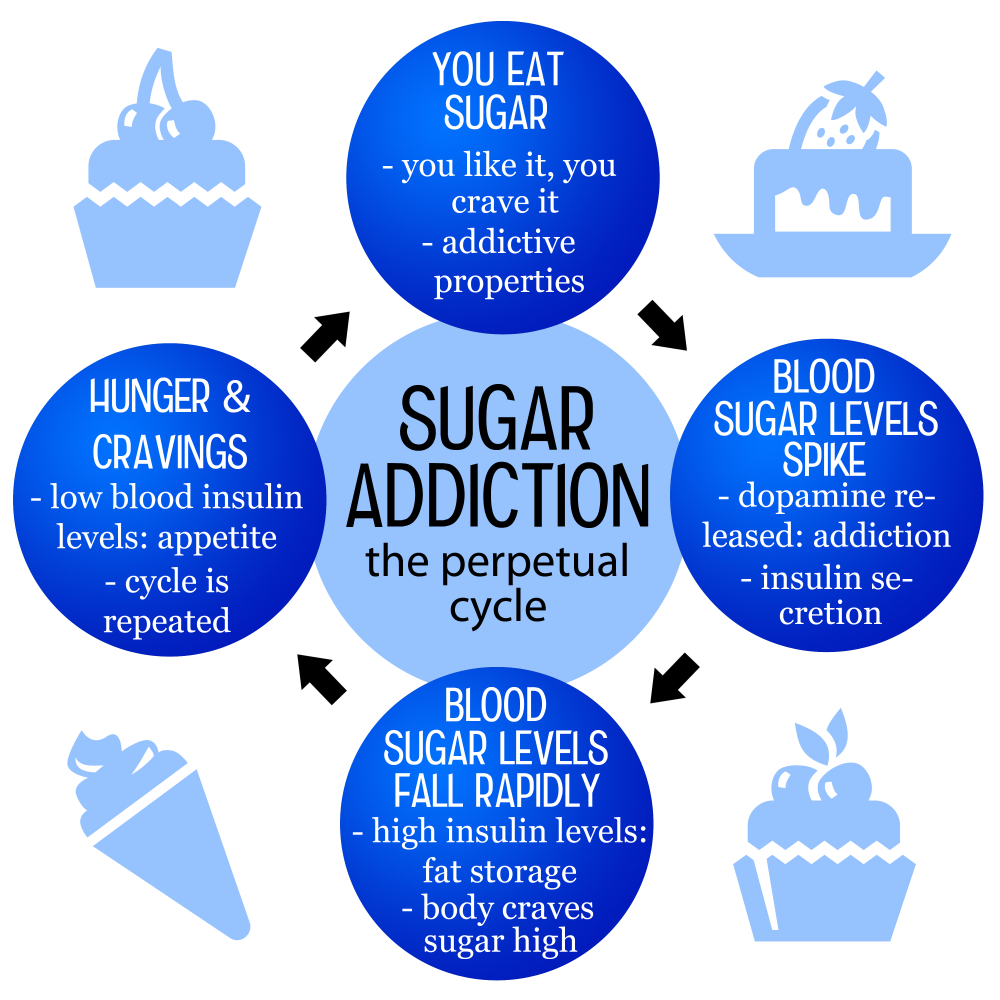Is sugar addictive? This question has sparked significant debate among nutritionists and health enthusiasts alike. While sugar doesn’t meet the strict clinical criteria for addiction like alcohol or nicotine, its ability to induce cravings and compulsive eating behaviors is undeniable. The average American consumes nearly 20 teaspoons of added sugar daily, revealing how deeply embedded it is in our diets, especially in processed foods. The American Heart Association’s sugar guidelines recommend much lower intake for optimal health, as excessive sugar can lead to detrimental health effects, making discussions around sugar addiction not just relevant, but essential.
The conversation about whether sugar is inherently addictive or not often veers into discussions about cravings and the effects of certain foods on our mental and physical well-being. Many people experience intense desires for sweets, particularly found in products lilke sugary snacks and beverages, which leads to questions about their role in dietary habits. This topic touches on the broader umbrella of addictive substances and their impact on our lifestyle, further revealing the complexities of how our body responds to food choices. Understanding the nuances of sugar, along with its addictive potential from processed food sources, is crucial for making informed dietary decisions in today’s sugar-saturated world.
Understanding Sugar Addiction
The question of whether sugar is truly addictive has been a topic of extensive research and debate among nutrition experts. While some individuals experience strong cravings for sugary foods, comparable to those associated with drug addiction, it is essential to note that sugar does not meet the strict clinical criteria for addiction like substances such as nicotine or alcohol. This distinction is crucial because it shapes how we approach our eating habits and understand food cravings. People might find comfort in sweet foods during stressful times, and this dependence can feel addictive, but scientifically, sugar operates differently than narcotics.
Processed foods laden with added sugars can heighten these cravings, leading to habitual consumption patterns that are difficult to break. This cyclical behavior—where individuals crave sweets, consume them, and then experience withdrawal-like symptoms when they stop—can mimic addiction. Therefore, while sugar itself may not be classified as an addictive substance, its effects on the brain and body can lead to feelings of craving and compulsive consumption similar to what is seen with more commonly accepted addictive substances.
Frequently Asked Questions
Is sugar addictive like alcohol or nicotine?
While sugar can increase cravings and compulsive eating behaviors, it is not classified as an addictive substance like alcohol or nicotine. The physical and psychological effects of sugar consumption, particularly from ultra-processed foods, can lead to withdrawal-like symptoms when consumption is reduced, but the severity and dependency levels are significantly lower than those of recognized addictive drugs.
What are the health effects of sugar cravings?
Sugar cravings can lead to increased consumption of processed foods, which often contain added sugars, unhealthy fats, and high sodium levels. Regular consumption of these foods can cause habitual eating patterns that may lead to withdrawal symptoms such as headaches and anxiety when sugar consumption is decreased.
How do processed foods relate to sugar addiction?
Processed foods typically contain high levels of added sugars that enhance their palatability, leading to increased sugar cravings. The habitual consumption of these foods can create a cycle of dependency, making it challenging to reduce sugar intake and often resulting in withdrawal-like symptoms when trying to quit.
What does the American Heart Association say about sugar intake?
The American Heart Association recommends limiting added sugar intake to no more than 9 teaspoons per day for men, 6 teaspoons for women, and even less for children. Being mindful of added sugars is essential for maintaining a healthy diet and reducing the risk of health complications associated with high sugar consumption.
Can reducing sugar intake lead to negative psychological effects?
Yes, abruptly stopping sugar intake can lead to withdrawal-like symptoms such as headaches, dizziness, and anxiety. Therefore, it’s advised to gradually reduce sugar intake to mitigate these effects and facilitate a healthier transition to lower sugar consumption habits.
Is all sugar consumed in our diets addictive?
Not all sugar is considered addictive. Natural sugars found in fruits, vegetables, whole grains, and dairy products are part of a balanced diet. It’s the excessive amounts of added sugars from processed foods that can lead to cravings and unhealthy eating behaviors.
How can I manage my sugar cravings effectively?
To manage sugar cravings, it’s important to be mindful of your intake of processed foods high in added sugars. Gradually reduce your sugar consumption rather than going cold turkey, and read food labels to understand your sugar intake. Incorporating whole foods and maintaining a balanced diet can also help curb cravings.
| Key Points | Details |
|---|---|
| Debate on Sugar Addiction | Sugar is debated in terms of addiction, compared to substances like alcohol and nicotine. |
| Cravings and Withdrawal | Sugar can create cravings, and some withdrawal-like symptoms may occur when reducing intake, such as headaches and anxiety. |
| Not Officially Addictive | Currently, sugar is not classified as an addictive substance by clinical standards. |
| Health Impact of Diet | Ultra-processed foods high in added sugars can increase cravings and lead to habitual consumption. |
| Recommended Sugar Intake | The American Heart Association recommends limiting added sugar to 9 teaspoons for men, 6 teaspoons for women, and less for children. |
| Balanced Consumption | Moderate sugar consumption can provide benefits like enhanced flavor and pleasure. |
Summary
Is sugar addictive? While it presents some qualities similar to addiction through cravings and withdrawal symptoms, it is important to highlight that sugar is not officially classified as an addictive substance. The intake of sugar, especially from processed foods, can lead to habitual consumption and cravings, but the psychological impact is significantly less severe than that associated with drugs or alcohol. Moderation is key, and understanding sugar intake recommendations can help people manage their consumption effectively.
